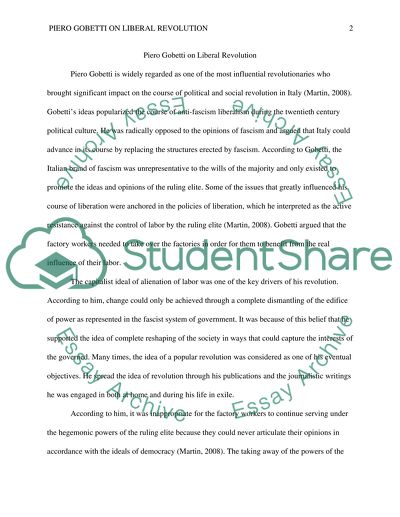Cite this document
(“Piero Gobetti on Liberal Revolution Essay Example | Topics and Well Written Essays - 1500 words”, n.d.)
Piero Gobetti on Liberal Revolution Essay Example | Topics and Well Written Essays - 1500 words. Retrieved from https://studentshare.org/history/1465591-piero-gobetti-on-liberal-revolution
Piero Gobetti on Liberal Revolution Essay Example | Topics and Well Written Essays - 1500 words. Retrieved from https://studentshare.org/history/1465591-piero-gobetti-on-liberal-revolution
(Piero Gobetti on Liberal Revolution Essay Example | Topics and Well Written Essays - 1500 Words)
Piero Gobetti on Liberal Revolution Essay Example | Topics and Well Written Essays - 1500 Words. https://studentshare.org/history/1465591-piero-gobetti-on-liberal-revolution.
Piero Gobetti on Liberal Revolution Essay Example | Topics and Well Written Essays - 1500 Words. https://studentshare.org/history/1465591-piero-gobetti-on-liberal-revolution.
“Piero Gobetti on Liberal Revolution Essay Example | Topics and Well Written Essays - 1500 Words”, n.d. https://studentshare.org/history/1465591-piero-gobetti-on-liberal-revolution.


